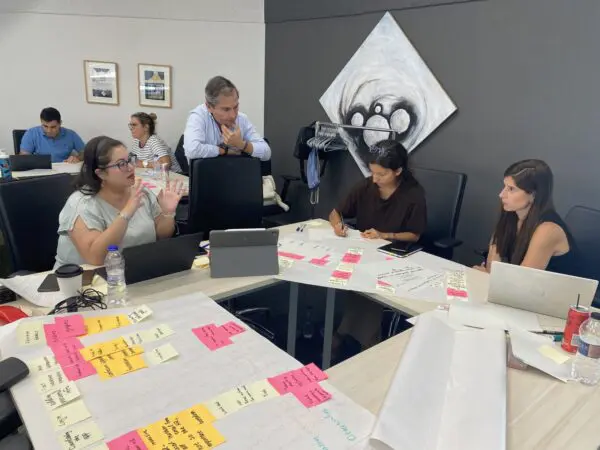
Athens, Greece
Develop soft skills for disruption
When:
06 July - 09 July 2026
Credits:
2.5 EC
Read more
Business & Entrepreneurship
When:
03 July - 19 July 2019
School:
Institution:
Maastricht University
City:
Country:
Language:
English
Credits:
6 EC
Fee:
1000 EUR

Today countless innovative business models are emerging. Entirely new industries are forming as old ones crumble. Upstarts are challenging the old guard, some of whom are struggling feverishly to reinvent themselves. How do you imagine your organization’s business model might look two, five, or ten years from now? Will you be among the dominant players? Will you face competitors brandishing formidable new business models? Which trends can make your business more challenging? Or, which trends do you miss right now?
The scale and speed at which innovative business models are transforming industry landscapes today is unprecedented. For entrepreneurs, executives, consultants, and academics, it is high time to understand the impact of this extraordinary evolution. Now is the time to understand and to methodically address the challenge of business model innovation. Ultimately, business model innovation is about creating value, for companies, customers, and society. It is about replacing outdated models.
But how can we systematically invent, design, and implement these powerful new business models? How can we question, challenge, and transform old, outmoded ones? How can we turn visionary ideas into game- changing business models that challenge the establishment—or rejuvenate it if we ourselves are the incumbents?
In this course we will look in to these issues, guided by Alexander Osterwalder’s book Business Model Generation. It will be an interactive course which there isn’t one right answer. However, this course will give you tools how you can (or must) rewrite your business model by breaking down patterns and routines. To do so we also take a look at some trends, especially the arise of Corporate Social Responsibility (or Social Entrepreneurship). What is Corporate Social Responsibility (CSR) and what are the implications of companies want to implement it? In particular: does CSR effect business results? How can CSR help businesses to create, deliver and capture value?
This course consists of 32 class hours divided over 3 weeks. Students earn 6 ECTS credits when they obtain a passing grade.
M.M.J.J.M. Bertrand S. van der Laan M.J.M. van Eck K.J.M. Willems M.J. Feeney
Knowledge of entrepreneurship (intrapreneurship) and/or organizational strategy is desirable. The participants must meet the following conditions: current student at an university and/or graduated from an university and/or executives and/or entrepreneurs (start-ups as well as SME’s).
A minimum of 6 students is required for the class to take place.
The learning goals are:
- Defining the current business model
- Understanding how to create, deliver and capture value
- Creating new business models for current businesses
- Understanding Corporate Social Responsibility
- Understanding the impact of Corporate Social Responsibility as a strategy to increase value for an organization
Fee
1000 EUR, This 3-week course costs €1000,-.
When:
03 July - 19 July 2019
School:
Institution:
Maastricht University
Language:
English
Credits:
6 EC

Athens, Greece
When:
06 July - 09 July 2026
Credits:
2.5 EC
Read more

Mannheim, Germany
When:
29 June - 03 July 2026
Credits:
3 EC
Read more

Bruges, Belgium
When:
20 April - 30 April 2026
Credits:
7 EC
Read more